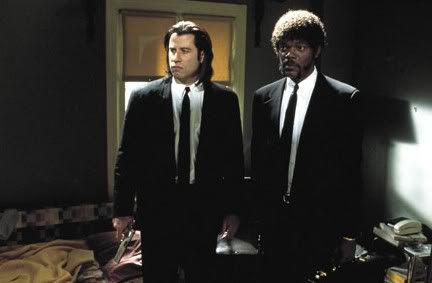 |
| Israeli dreamin'. |
There's this highly popular and overly-heeded phrase in "The Wizard of Oz" which states that there's no place like home. I, for one, can nonchalantly and confidently say that, indeed, there's no other country that can compare to the Philippines' awe-inspiring, sun-baking, and smoke-belching glory. But here in "Transit", a film directed by Hannah Espia and is shot mostly in Israel, the states of mind of Filipinos who were forced by circumstances to assume a foreign country as their homeland are explored, and the end result is something that validates the claim that Philippine cinema is, yet again, relatively on the rise.
Edited in a highly non-linear fashion that's quite reminiscent of Alejandro Gonzalez Iñárritu's films and whose story was told in a way that makes it a distant kin to Asghar Farhadi's "A Separation", "Transit" effortlessly crisscrosses between its otherwise all-encompassing and sensitive subject matter (religion, politics, race) and its smaller, more observant drama without losing a sense of balance. The film, about the Israeli government's decision to deport the children of immigrant workers, could have easily descended into the typical and highly mechanical territories of a cinematic thriller. After all, "Transit's" story is ripe with racial tension and international intrigue; two themes that most politically-charged thrillers commonly tread. Even the title, honestly, has steered my guts into expecting a relatively tense arthouse film.
Surprisingly, what I got instead, along with all the others who were lucky enough to see the film for free, is a painfully realistic, impressively assured, and unexpectedly lyrical look at the plight of those affected by the said implementation. And as much as the film is about the consequences of politics, "Transit", in terms of characterization and story, is evidently more focused on its human elements rather than the bureaucratic technicalities that truncate them. Even the Israeli characters in the film, which, if we consider Espia's potential bias as a Filipino filmmaker, could have easily been transitory and completely one-dimensional, were fleshed out and were also given their respective hearts.
Jasmine Curtis, once known in Philippine showbiz merely as, quote unquote, "Anne Curtis' pretty little sister", has developed into a full-fledged actress, thanks of course to Espia's impressive direction. Reliable character actors Ping Medina, Irma Adlawan, and indie nymph Mercedes Cabral, on the other hand, were almost unrecognizable in their roles. Be it through how Medina intentionally 'carabaos' the way he speaks English, how Adlawan, even without doing anything, evokes, through her gestures, facial expressions, and even her slightly hunched posture, the hardships of a typical OFW, or even how Cabral uses her eyes so effectively that they seem to have lives and characters of their own, the cast successfully makes use of dramatic subtlety to finely complement the film's effectively simplistic cinematography (by Ber Cruz and Lyle Sacris). But then again, the emotional center of the film is Marc Justine Alvarez as Joshua: the kid that's in danger of being deported back to the Philippines.
Personally, I can sometimes tell that a film is finely-directed by way of how the kids in it act. And here, Alvarez' naturalistic acting just goes to show how promising Hannah Espia really is (I forgot to mention that this is her debut feature) both as a nuanced filmmaker and as an actor's director. And though there will always be, at least for a local filmmaker, the temptation to turn a film like this, which was shot in a foreign country, into a travelogue of sorts (eherm, Star Cinema, eherm), Espia never succumbed to it. Instead, she has utilized Israel's quaint beauty and religious traditions to further a sense of cultural insight into the so-called Holy land, to validate the characters' genuine attachment to the place, and to answer just why, aside from financial needs, it's just really hard for them to go.
Of course, Dorothy was right when she happily exclaimed that "there's no place like home", but would the meaning of this very naive phrase still apply to people (like the ones in the film) who adhere themselves to the concept of home not because of sentimental or nationalistic reasons but of simple necessity? "Transit" quietly shakes its head and takes the statement with a grain of salt (Dead Sea pun intended). The way I see it, the film is a highly resonant reminder to the independent film industry here in the Philippines that 'poverty' is not the only topic there is, nor squatter areas and non-redemptive lowlives the only ones that deserve attention from filmmakers. Sometimes, we need to peek outside of our immediate realities and snoop on our more affluent neighbors because, who knows? One of our family members may be hopelessly lost in there, and who are in dire need of help and also of a voice.
FINAL RATING







